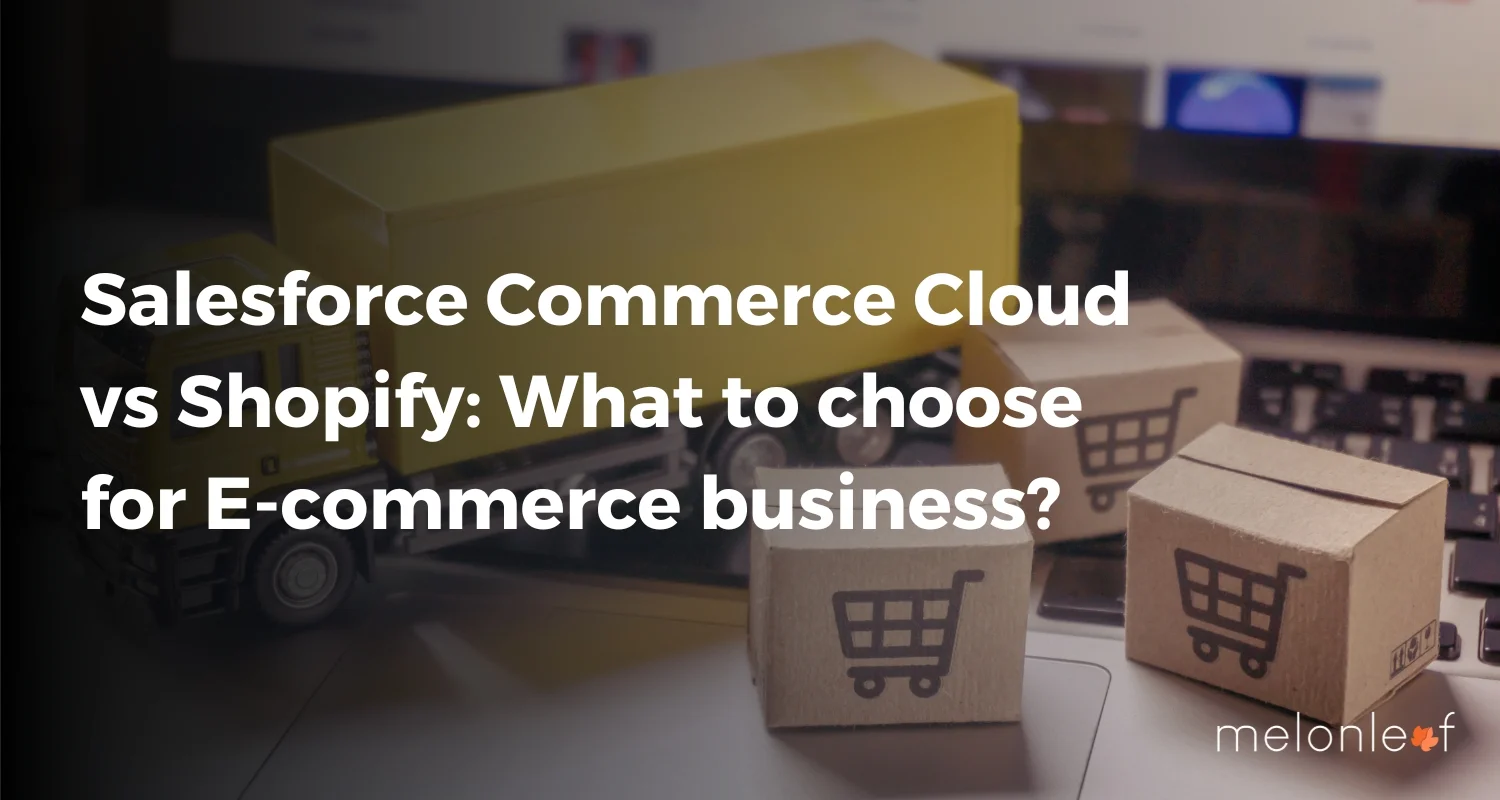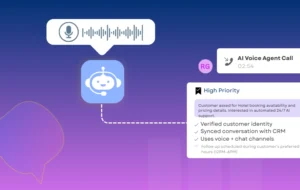Today, e-commerce is booming as never before. And this trend isn’t going to slow down any time soon. That’s why building your business on top of an e-commerce platform makes sense.
If you start selling your products or ideas on the internet, you may have to choose one platform from Shopify or the Salesforce commerce cloud. These two solutions have grown in popularity over recent years and have become more commonly known brands within e-commerce software.
In this article, we’ll compare Salesforce commerce cloud vs Shopify and understand which one is an ideal choice for e-commerce businesses.
What is the Salesforce Commerce Cloud?
The Salesforce Commerce Cloud is a cloud-based commerce platform built on the same technology as Salesforce. It comes with an API and open ecosystem that enables retailers to create personalized shopping experiences for every customer.
It helps you connect your customers with the right products at the right time and place. It’s a powerful set of tools and services designed to help you drive growth by connecting your customers with the products they want at every stage of their journey.
The Commerce Cloud promotes online commercial decision-making through intelligent data for its users. They also have their own advanced tools for their customers to manage their products and content, as well as pricing and promotions that can ultimately increase consumer engagement.
The following are key features of the Salesforce Commerce Cloud:
- The ability to build personalized journeys for customers on websites, mobile devices, social media, or wherever they might be.
- Industry-specific solutions, like e-commerce for apparel brands, help ensure compliance with regulations and simplify processes for inventory management.
- Integrated digital storefronts enable brands to sell directly to consumers (B2C) or sell products to other companies (B2B).
- B2b commerce cloud integrates customer data across multiple channels so companies can personalize marketing campaigns, improve customer retention and increase sales conversions.
What is Shopify?
Shopify is a platform that allows you to create an online store. It offers many tools, including e-commerce business features, payment processing, inventory management, and more. You can start your store to sell products, promote yourself and build a following. Shopify also provides an app store with more than 150 apps for you to choose from.
Shopify is the world’s leading commerce platform, powering millions of online stores in nearly every country. Shopify is one of the most popular e-commerce platforms because it’s easy to use and costs less than other e-commerce solutions. It has a massive community of users who can give you advice on how to improve your site or help you with any problems you might have along the way.
With Shopify, you can build your online store quickly and easily. They offer simple plans for everyone, from small business owners to entrepreneurs. Their plans start at $29 per month and have everything you need to start selling online.
The following are key features of Shopify:
- Sell your products through an easy-to-use online storefront with no coding experience required.
- Real-time analytics and reports on all your sales data to improve your ROI (return on investment).
- Automated order fulfillment and shipping.
- Multiple payment options, including PayPal and Stripe.
- Customers can purchase items with their credit cards directly from your site.
Salesforce commerce cloud vs Shopify: What platform to choose for your e-commerce business?
Customization
Shopify offers a range of templates that you can use to set up your online store. While these templates are functional, they might not be right for your business. If you want to make changes to the template you’re using, you can do so with the help of a developer or by using simple code changes.
In contrast, Salesforce offers custom-built solutions for businesses through Salesforce customization services. These solutions are designed specifically for your business and its unique needs, but they come at a cost. To get the most out of Salesforce’s features and functionality, you’ll need to hire an experienced developer or work directly with a team that specializes in Salesforce customization.
Integrations
Shopify integrates very well with many different platforms and apps, including Amazon, Facebook, and Google Analytics. You can also integrate third-party apps to extend the functionality of your store.
Salesforce Commerce Cloud has built-in integrations and third-party extensions that allow you to manage your e-commerce store in one place. The platform also integrates with popular payment gateways like Stripe and PayPal, so you can accept payments on your website without integrating with multiple platforms.
Marketing and plugins
The Salesforce Commerce Cloud platform includes several APIs and tools to help you build e-commerce business websites, mobile apps, and custom integrations with partners. The platform also includes an analytics suite that provides visibility into customers’ journeys across all channels, including the web, mobile web, native apps, and more.
If we compare Salesforce commerce cloud vs Shopify, the latter is not exactly a full-fledged marketing platform. You’ll need to use third-party solutions such as Mailchimp or HubSpot to market your store to new customers.
Multi-Store Expansion
While Shopify does offer multi-store support, it’s not as flexible as the Salesforce Commerce cloud. The main difference between the two platforms is that Shopify uses a single “master” store that houses all your products and inventory across all your stores. This can limit large retailers with multiple brands or product lines because you can only shop for one brand at a time.
On the other hand, the Salesforce B2B commerce cloud integrates multiple channels to help you scale your business. The Salesforce commerce cloud helps you manage your products and inventory from one central point of control.
Salesforce commerce cloud vs Shopify: Which one treads ahead?
When it comes to the question of what platform to choose for your e-commerce business- scalability, simplicity of use, and flexibility are all critical considerations. Both Salesforce commerce cloud and Shopify have a strong competitive product market.
The deciding factors would be your current goals and objectives and future-scaling plans for building your eCommerce shop that will grow with time to provide your customers with the best possible experience as they shop on your site.
The best option is Salesforce Commerce Cloud because it already has a strong product-market among large enterprises and individuals.
How can Melonleaf help?
Melonleaf aims to help businesses with the Salesforce Commerce Cloud that helps them create engaging online shopping experiences. We deliver a unified commerce experience across all touchpoints and devices to drive customer engagement and sales.
With the help of our Salesforce Consultants, your brand can create an omnichannel customer experience to deliver consistent retail experiences across multiple channels, including e-commerce websites, mobile apps, and social media.
We have previously worked with enterprise companies to build their custom applications on the Salesforce Commerce Cloud, and we’ll be able to help you with your project.
We can help you with the following:
- Building custom apps for Salesforce Commerce Cloud;
- Customizing templates;
- Developing plugins;
- Integrating third-party services with the Salesforce Commerce Cloud.












